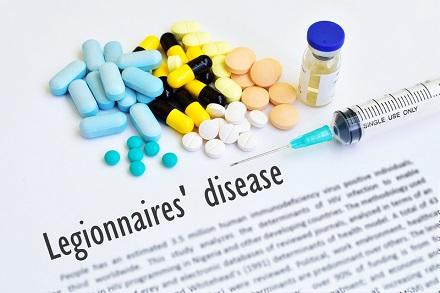

According to an article in the Atlanta Journal-Constitution, three people who stayed at the hotel on Courtland Street tested positive for Legionnaires’ disease, which is contracted by breathing in mist or swallowing water containing bacteria.
"Based on epidemiological evidence we have an outbreak among people who stayed at the [Sheraton Atlanta] during the same time period," said Nancy Nydam, director of communications at Georgia Department of Public Health, told USA TODAY.
Public health officials have not yet confirmed if the guests contracted the disease during their stay, a spokeswoman for the hotel said, but the hotel has voluntarily closed until the source of infection is found and remediation is complete, Nydam said. More than 400 guests have been relocated to nearby hotels, CNN affiliate WSB-TV reported.
In addition to relocating current guests to nearby hotels, Sheraton is also reaching out to guests with upcoming reservations "to assist in directing them to other nearby hotels," according to Ken Peduzzi, the hotel’s general manager.
Why the panic? Legionnaire’s Disease is a serious illness with a high mortality rate – about one in 10 people who get sick from it will die, a recent government report found. It also has other long-lasting effects.
And the problem is that its symptoms – at least early on – are general in nature.
CNN notes that the illness begins with a patient feeling tired and weak, according to the educational organization Legionella.org. Other common symptoms include coughing, diarrhea, nausea, vomiting, headaches, muscle aches, chest pain and shortness of breath. And the incubation period (the time lapse between exposure and the onset of symptoms) is a widely-varying two to 10 days.
Described as a "severe, often lethal, form of pneumonia," Legionnaires' can lead to treatment in an intensive care unit, according to Legionella.org. Some symptoms may be long-term: One study showed that three quarters of survivors continued to feel tired, 66 percent had neurologic symptoms and 63 percent had neuromuscular symptoms months after their diagnosis.
State epidemiologist Cherie Drenzek told WSB that past outbreaks have been associated with "shower heads, hot tubs, perhaps even ... decorative fountains." Drenzek added that the Sheraton is also working on the filtration system in the hotel's swimming pool.
The hotel is taking no chances, says the Atlanta paper, adding, “testing and remediation is being conducted by a Legionella consultant at the hotel’s expense, according to the Georgia Department of Public Health. Once complete, the agency and the Fulton County Board of Health staff will work with the hotel on next steps.”
While the disease originally came to the attention of health officials in 1976 during an American Legion convention in Philadelphia, it is by no means confined to gatherings consisting only of adults. In September 2017, 12 people were diagnosed with Legionnaire’s after visiting Disneyland. In response, the park shut down and disinfected two cooling towers that had high levels of the bacteria.
So what can be done by event and venue owners to prevent the disease? According to the CDC, Legionnaire’s bacteria thrives when water is within a certain temperature range (77°F-108°F). To keep water outside the range for the bacteria’s growth, it is important to keep cold water cold and keep hot water hot.
And while the knee-jerk reaction would be to just turn up the temperature of hot water heaters, local and state anti-scald regulations usually apply to venues like hotels, health clubs, swimming pools and so on – meaning it’s not as easy as just turning a knob or flipping a switch. Additionally, in warm climates or during summer months, water in pipes that carry cold water may reach a temperature that allows Legionella to grow.
Event owners should familiarize themselves with the symptoms of the disease and alert athletes (and parents) to do the same – with the awareness that often, many of the symptoms, such as tiredness, weakness, headache, nausea and so on – could be linked to a multitude of other problems including heat exhaustion. Seeing a doctor at the onset of any symptoms can only benefit the athlete in the long run.

